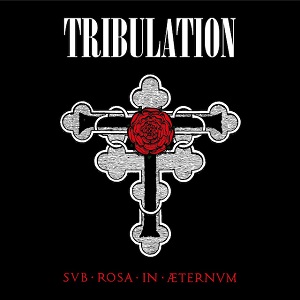Report: Korean Director Zooms In On German Heavy Metal Village Wacken
April 13, 2007, 17 years ago
The following report is courtesy of Jurnalo.com:
The cultural divide between villagers in north Germany and the heavy metal fans who descend on their quiet community could hardly be greater. Prim cotton blouses, Wellington boots and double-breasted suits contrast with studded collars, tattoos and shoulder-length hair. The Wacken Open Air line-up of bands says it all: CANNIBAL CORPSE, GRAVE DIGGER, RAISE HELL, DEATH ANGEL, SODOM.
Wacken has become a place of pilgrimage for 40,000 heavy metal fans who gather in the Schleswig-Holstein village each year for an orgy of hand-banging and ear-splitting music.
And the locals are proud that their sleepy community of 1,800 has become a spiritual centre of the heavy metal world even though the festival shatters the peace and tranquillity of their daily life.
This is the atmosphere that South Korean director Sung-Hyung Cho tries to capture in her debut feature-length film Full Metal Village that is due to open in German cinemas next week.
The 90-minute documentary describes the amiable clash between the cultures and how the festival has become a fixture in the rural community since it was launched 17 years ago.
The way people from different cultures approach each other has been a topic of major interest to the Busan-born director ever since she came to to Germany as a student in 1989.
"I wasn't always happy to be here in Germany. I had my problems with Germans. I couldn't understand why they were so uptight. People in Wacken are different. It's through them I learned to love the country I live in," says the 40-year-old.The director says she wanted to make a documentary in the tradition of the German "heimat" or homeland film genre, which portrays rural everyday life in a realistic and unsentimental way.
In the film, scenes of choir practice at the local church and farmers going about their daily work contrast with shots of leather clad fans arriving in motorcycle convoys or jumping up and down to the thumping music.
But the martial gestures and posturing of the visitors is nothing more than a show - and the villagers know that, says Cho, who describes Wacken as a classic example of tolerance.
On the humourous side, one scene shows a farmer telling the camera that he can recognize his 80 cows by their udders. "I could do the same with 80 women," he says.
"Every woman has got different breasts. I'd just have to stroke them mornings and evenings every day for a year and then I'd be able to pick them out to. "
The film also describes the fundamental changes taking place in Wacken as the community seeks to wean itself off its unprofitable dairy industry in favour of other sources on income.
"It's more profitable to milk people than cows," says farmer Trede as the film explores how the two sides try to bridge the gaps that exist between them.The canny farmer has adapted to the changes by leasing land to the festival organizers and coordinating the duties of more than 150 helpers when the concerts are in progress.
Cho, who is not a heavy metal fan, says she felt at home shooting the film in Wacken because the people there reminded her of her home town of Busan.
"Although my home town is very large, life there was very communicative and people got on well together. I felt at home in Wacken; a little bit exotic, but at home," she told kino-zeit film magazine.
"Being an outsider is not necessarily negative. Since I've been involved in films it has been something positive for me. As a stranger you get the opportunity to see things better, to experience more. "
Cho, whose work was shown on the fringe of this year's Berlin festival, has already picked up two regional prizes in Germany for Full Metal Village.
Her next project is a documentary in South Korea, which will also be a "heimat" film.
"Full Metal Village has made me think more about my homeland . I'll be an outsider in South Korea and will therefore see more than the locals," says Cho.











